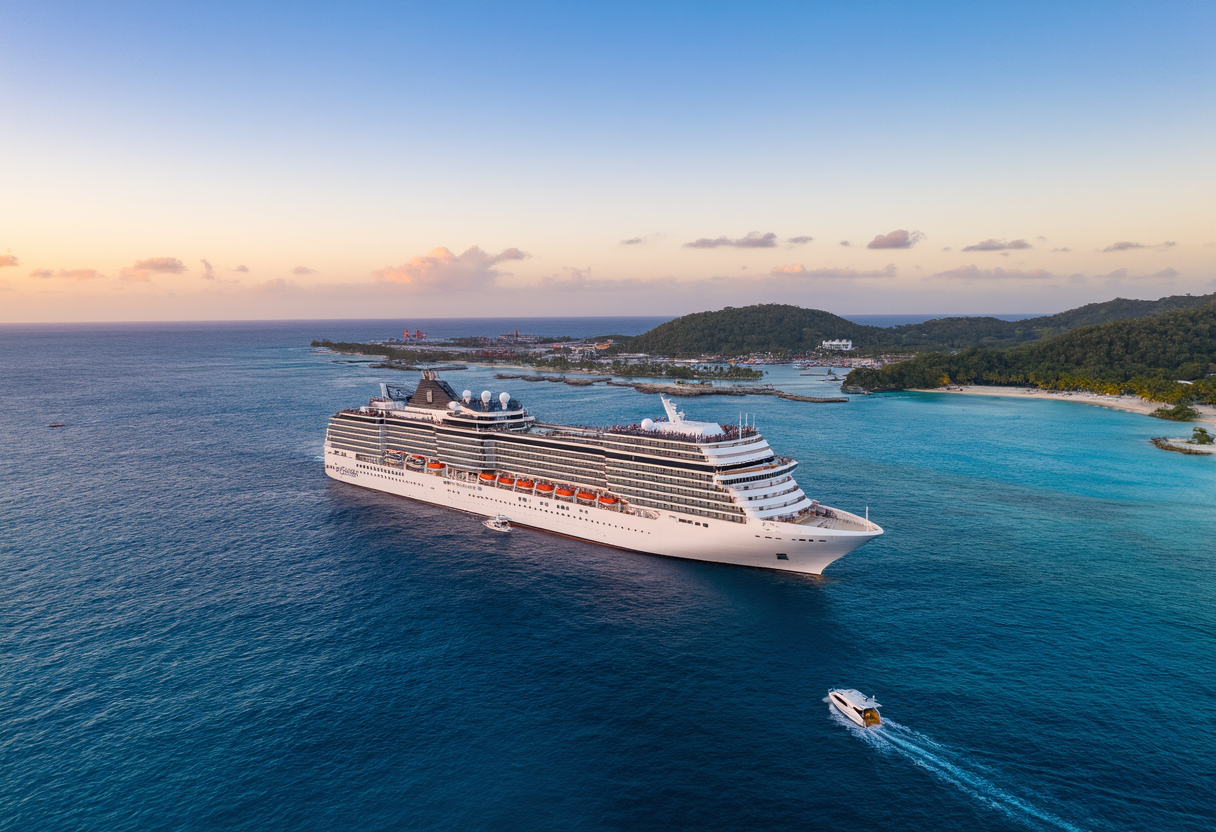Exploring the Rising Trend of Cruise Tourism: A Journey Beyond the Waves
Cruise tourism continues to gain popularity, redefining travel experiences around the world. As travelers seek immersive adventures at sea, the industry adapts through innovation in itineraries and sustainability practices. Discover the growing influence of cruise tourism on global destinations and local economies.
Introduction to Cruise Tourism and Its Expansion
Cruise tourism has evolved significantly over the past few decades, transitioning from a niche market to a mainstream travel experience. As travelers increasingly value convenience and the opportunity for unique experiences, cruise tourism offers unparalleled adventures on the open water. This mode of travel allows guests to explore multiple destinations comfortably, often providing luxurious amenities onboard. Moreover, advancements in ship technology and increased itineraries have made cruise tourism more accessible to a wider audience. This expansion raises essential questions about sustainability and its impacts on coastal communities. As a result, understanding the multifaceted nature of cruise tourism is crucial for contemporary travelers and industry stakeholders.
The Economic Impact of Cruise Tourism
One undeniable benefit of cruise tourism is its substantial economic impact on port cities. The influx of cruise passengers boosts local economies through spending on excursions, dining, and souvenirs. In fact, studies indicate that each cruise passenger contributes hundreds of dollars to the local economy during their visit. This surge in economic activity stimulates job creation in various sectors, thereby reducing unemployment rates in tourist-heavy areas. However, while cruise tourism can provide economic boosts, it also raises concerns about overtourism and strain on local resources. Balancing the growth of the cruise tourism industry with environmental preservation is becoming increasingly vital.
Ecological Considerations in Cruise Tourism
Cruise tourism also raises important ecological considerations. As cruise ships visit sensitive environments, the risk of pollution and habitat degradation escalates. Consequently, many cruise lines are taking significant steps toward sustainability. Initiatives, such as utilizing cleaner fuels and implementing waste management systems, demonstrate the industry's commitment to minimizing environmental impacts. Furthermore, some operators are investing in eco-friendly technologies, ranging from energy-efficient engines to water purification systems onboard. The challenge remains: can cruise tourism continue to thrive while preserving the natural beauty of its destinations? This question is central to the future of the industry.
Cultural Exchange and Community Engagement in Cruise Tourism
Beyond its economic and ecological dimensions, cruise tourism fosters cultural exchange between travelers and local communities. Passengers often engage with local cultures through tours, culinary experiences, and festivals, enhancing their travel experience while also spotlighting local traditions. This interaction promotes understanding and appreciation of diverse cultures, benefiting communities through cultural exchange. However, it is crucial that cruise lines work closely with local stakeholders to avoid cultural appropriation and ensure that tourism profits are shared fairly. A focus on responsible cruise tourism can lead to mutually beneficial relationships between visitors and host communities.
Trends Shaping the Future of Cruise Tourism
Looking ahead, several trends are shaping the future of cruise tourism. Personalization is at the forefront, with travelers seeking tailored experiences that reflect their interests and preferences. Cruise lines are increasingly using technology to facilitate this need, offering customizable itineraries and onboard experiences. Additionally, the demand for expedition-style cruises is rising, as adventure seekers look for immersive journeys in less-traveled regions. As the industry evolves, embracing these trends will be essential for cruise tourism's sustained success and appeal among newer generations.
Conclusion: Navigating the Waters Ahead for Cruise Tourism
In conclusion, cruise tourism's evolution encapsulates a dynamic interplay between economic opportunities, ecological sustainability, and cultural engagement. The industry's growth in popularity reflects broader shifts in travel preferences, emphasizing the importance of experiences over mere destinations. Future advancements in technology, coupled with a commitment to sustainability, are pivotal for navigating the waters ahead. Ultimately, striking a balance between growth and responsibility will define the future trajectory of cruise tourism for generations to come.
